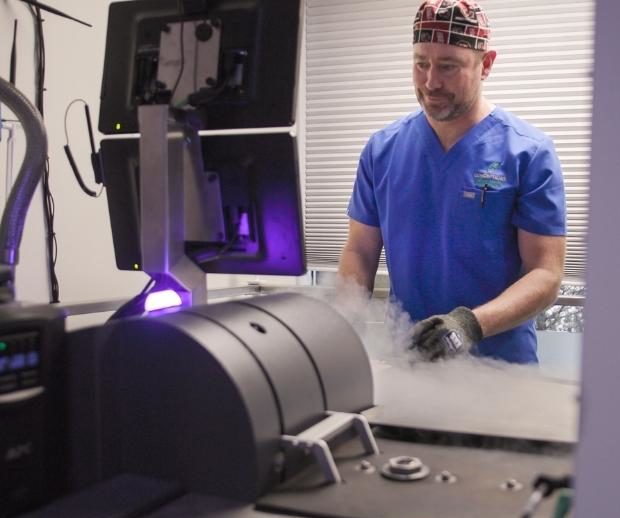It is estimated that 140,000 people under the age of 50 are diagnosed with a malignancy each year in the United States. The good news is that cancer survival rates are higher than they have ever been, likely as a result of early detection programs and advancements in treatment protocols. Patients with cancer are now able to live substantially longer and lead more productive lives. Therefore, quality of life issues, such as maintaining fertility potential, have become important areas of research. It is well known that surgery, chemotherapy, and/or radiotherapy administered during the adolescent or reproductive years can leave cancer survivors unable to fulfill their desire for having a family.
The American Society of Clinical Oncology released specific recommendations on fertility preservation in cancer patients to improve the information flow to the reproductive community. It states, “As part of informed consent prior to therapy, oncologists should address the possibility of infertility with patients as early in treatment planning as possible. As part of education and informed consent before cancer therapy, oncologists should address the possibility of infertility with patients treated during their reproductive years and be prepared to discuss possible fertility preservation options or refer appropriate and interested patients to reproductive specialists”. The problem lies in that a majority of oncologists do not discuss this issue at diagnosis routinely or patients feel the information they received was inadequate. Therefore, many patients do not realize until it’s too late that their fertility potential is diminished or completely absent.
The challenge, as reproductive specialists, is meeting the unique needs of cancer patients and survivors.
Role of the Reproductive Specialist
As a fertility specialist, I will primarily see two types of cancer patients: newly diagnosed patients and long-term survivors. Newly diagnosed patients will be seeking assistance with fertility preservation methods before the initiation of cancer treatment. Cancer survivors may require assistance in order to have a child after treatment or remission of their cancer. The needs of these patients are distinct from those of your standard infertility patients; therefore, require modifications to my standard practices.
Newly diagnosed cancer patients are dealing with a shock and emotional distress inherent to their cancer diagnosis. Then, as reproductive specialists, we give a second traumatic shock for these patients to consider: their possible infertility. These patients will likely need increased emotional support and sensitivity from those around them.
These patients will also have a short period of time in which he or she will be able to undergo fertility preservation techniques: time is of the essence. Discussion at the earliest possible opportunity is encouraged to allow patients fullest range of options. For example, several patients will have approximately two to six weeks between surgery and adjuvant therapy, which may be an opportune time for fertility preservation. Others may have less time; therefore, not meeting eligibility requirements for standard fertility procedures. Patients, especially female patients, must be counseled in an expedited fashion in order to afford them their full range of fertility preservation options.
It is important for patients to understand treatment effects and the possible impact on future fertility options. Communication is a key component in the care of these individuals.
Contact: Contact Conceptions Fertility Clinic at 303-794-0045 or view our contact us page


